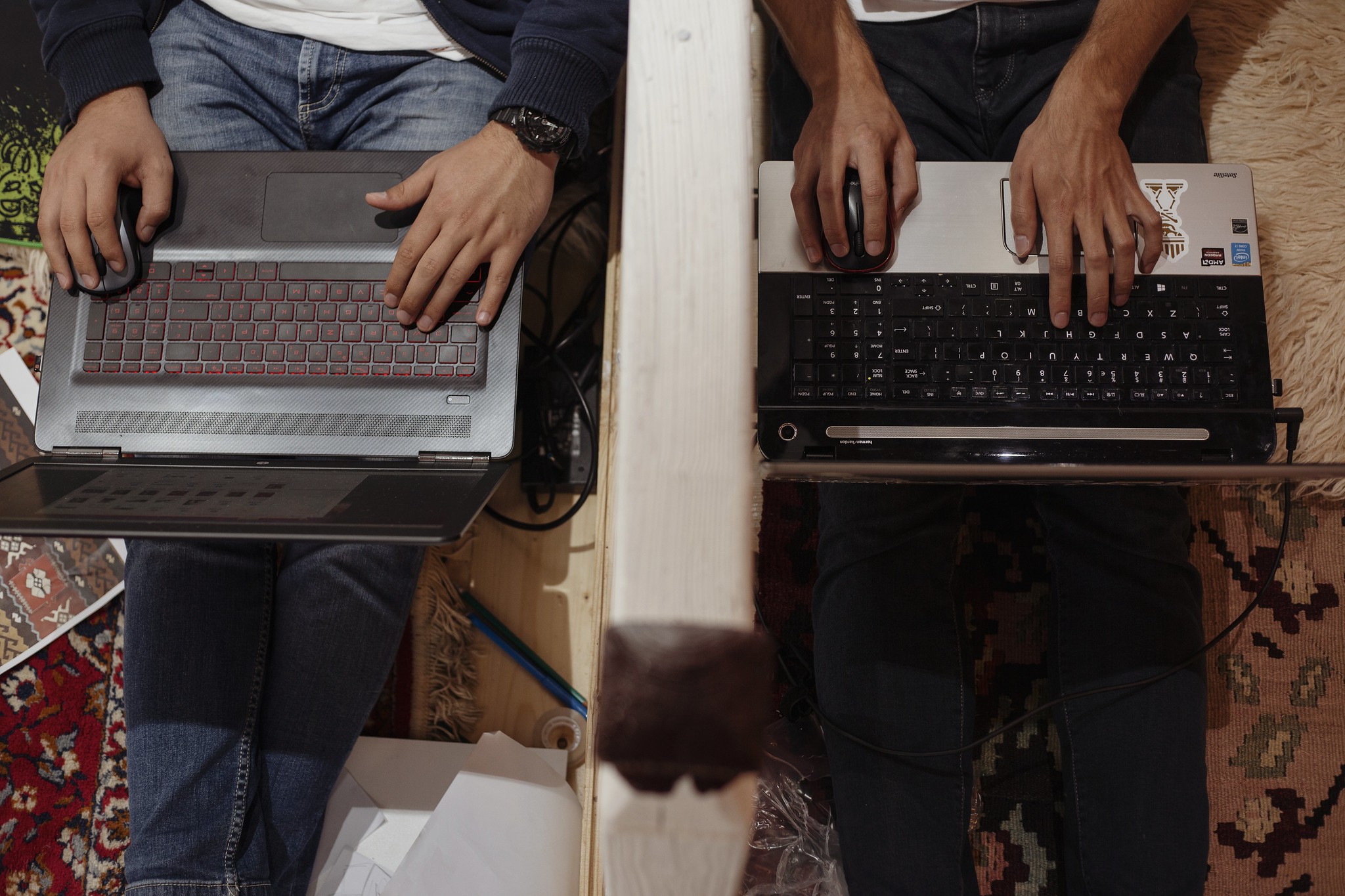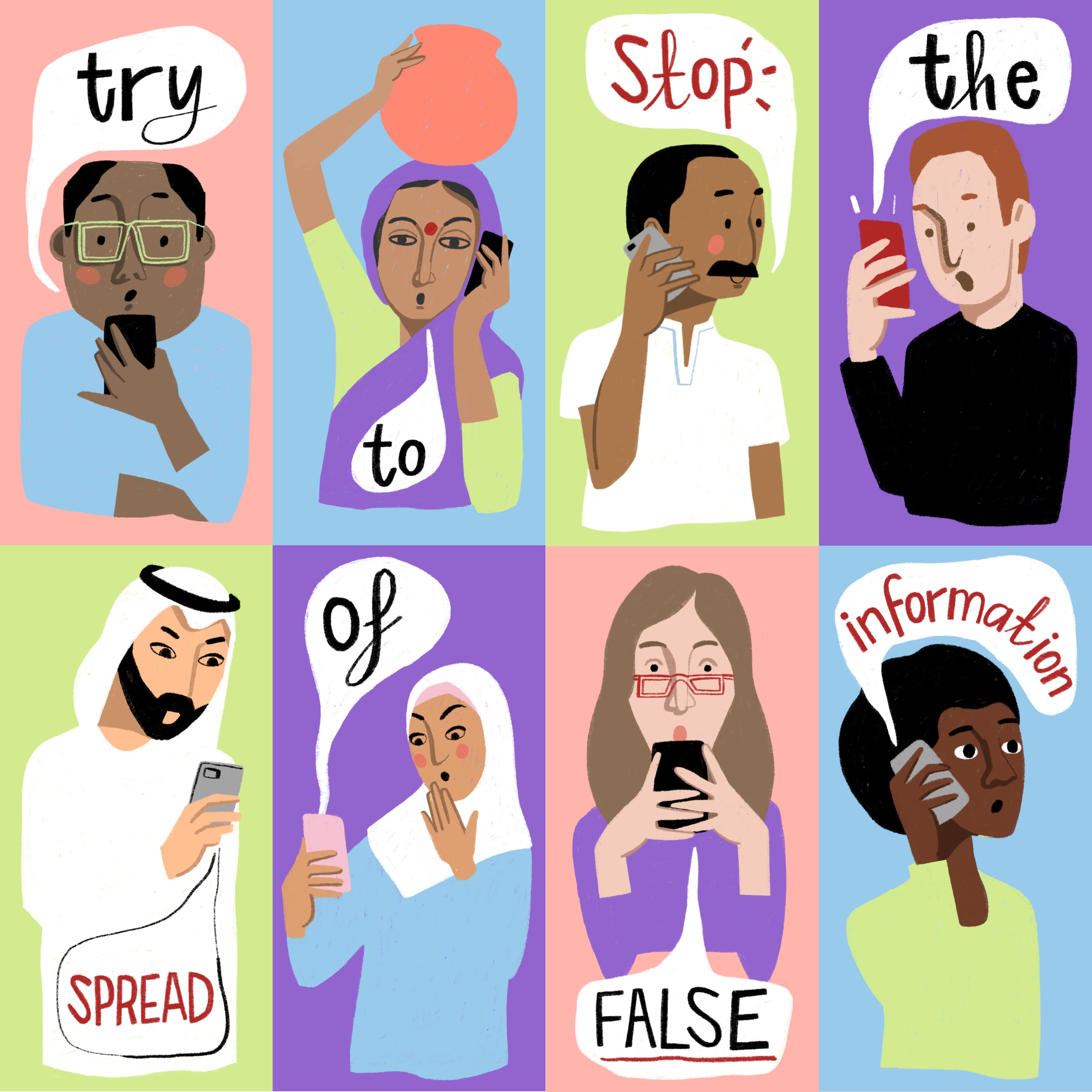Photo: Dardan Rushiti / UNDP Kosovo
We are exposed to an ever-expanding number of digital platforms that make information sharing easier. But the gamut of digital divides mean that people continue to have different and uneven access to these resources, if at all. Increased government controls and surveillance online pose additional challenges, and media freedoms have continued to erode over the past decade.
Most recently, the COVID-19 pandemic has revealed the inability of many governments to ensure an inclusive response to the pandemic across societal, geographic and horizontal divides. And this includes maintaining open, fact-based and transparent communication with all segments of society.
Online platforms have the positive potential to facilitate broader information sharing and bridge gaps, but they also can act as channels for disinformation, hate speech and conspiracy theories, and trigger anxieties. Information pollutants throughout the pandemic, dubbed as an ‘infodemic’ by the WHO, often added fuel to fire and hampered social cohesion by reducing trust between citizens and governments as well as within communities. With the continued advent of artificial intelligence tools, these trends will likely accelerate beyond COVID.
Here in the Europe and Central Asia region, we have seen all these trends materialize: online forums being used to fuel stigmatization towards particular groups, ethnic and religious groups being wrongly implicated of spreading COVID-19, the rise of discriminatory rhetoric towards women - all contributing to the rise of social, ethnic, religious and gender-based grievances.
Lack of access to connectivity, particularly electricity and internet, have exacerbated horizontal and geographical inequalities and led to the exclusion of large groups of people at a time when key services, such as education and health, have moved online.
As individuals spend more time online, there are concerns about rising gender-based abuse in digital spaces. The increased reliance on social media for political campaigns has represented an essential tool for women in politics to connect with the public, but also increased their vulnerability to online attacks and harassment. A recent report of the Secretary-General on the impact of COVID-19 on women stresses that the shift to online discourse also risks narrowing the space for women’s civil society organizations to operate and undertake urgency advocacy and service delivery in support of women’s rights.
Many countries are reporting increasing mistrust in national authorities, propelled by the limited quality/access to government response, lack of effective crisis communication and trustable information shared by national authorities, and corruption. The uneven response of governments to combat misinformation on COVID-19 has often resulted in tendencies toward censorship and freedom of expression, and political actors themselves have contributed to the information pollution.
But the picture is not entirely bleak. Individuals and organizations are banding together to push back against these negative trends. Various fact-checking organizations have expanded their activities to improve facts-based communication on COVID-19, and the private sector has partnered with UN agencies to support the dissemination of verified information. Peacebuilding efforts have turned to supporting social cohesion and inclusion using both online and offline means. Our UNDP offices have researched underlying trends in information integrity and COVID-19. We’ve supported government, media, private sector and civic capacities to improve facts-based and accessible communication on COVID-19, rebuild trust, and expand ongoing efforts to improve critical thinking skills through our interventions.
In our joint statement with other UN and development agencies last week, we called for governments to take stronger action against the infodemic, developing action plans and empowering community actors to tackle the crisis. We have also called for civic actors, including media, civil society and researchers, to work together with the UN and national authorities to develop solutions to this emergent challenge.
While we must demand higher standards, transparency and access from our governments and corporations, the individual also plays a vital role in peacebuilding in our information age. In a world where advanced technologies provide us with unfettered access to mass global communication, we must rely on our conscience when making online decisions that affect our immediate families, communities and nations.
So what can a global citizen do to push back against harmful rhetoric and misinformation online?
1. Help support actors promoting social cohesion online and offline: Civil society organizations helping promote peace are under increasing constraints with COVID-19, as their means to reach communities are curtailed due to social distancing measures, shrinking funding sources and an increased pressure on the civic space. Help support the efforts of peacebuilding organizations, amplify the messages of civic actors promoting peace, and share the work of fact-checking organizations helping to push back against information detrimental to social cohesion under COVID-19.
2. Check before you share: A sizeable portion of the information pollutants shared online regarding COVID-19 are done so with good intentions, where people pass on advice out of concern for safety. The urgency compels many to share information without necessarily verifying it first. Take the extra step to verify the information and assess the impact that sharing it may have on social cohesion.
3. Correct information online: Recent findings by Harvard Shorenstein Center suggests that many people find correcting others on messaging apps as a stressful and unusual activity, so refrain from it. However, the same study finds that corrections from a family member, close friend, and like-minded individual are more likely to be re-shared, suggesting that we all have an ability to make a modest constructive impact among our close circles. Use your voice to push back against online narratives of hate and division online, which are increasingly prolific.
4. Demand higher standards from the platforms that you use: Reach out to the platforms you use and demand they live up to the standards of good online behavior, including refraining from using discriminatory language, checking facts, and leveraging innovative tools for government accountability and transparency.
Marking the International Day for Universal Access to Information, we call upon governments, civic actors, the private sector, and most importantly, citizens everywhere to help develop solutions and contribute to reducing the impact of information pollutants on the fabric of our societies and to help promote social cohesion online and offline.

 Locations
Locations


